There is a wide range of species of spiders confirmed to be living in West Palm Beach. Although most of these spiders do not trespass on the homes in the area, there are a few that will still endeavor into your home, especially when it’s hot outside, because they need moisture.
When the temperature in the environment is hot, spiders often hide in voids, inside different holes to avoid dehydration due to the high temperature. Sometimes, it takes a while to realize a spider infestation in a home because they stay hidden.
Here are the 5 most common types of spiders in West Palm Beach with our verdict on whether you are in trouble if you see them or if you should simply try to release them outside:
1) Brown recluse
Brown recluse is one of the common spiders in West Palm Beach with a sandy brown body and no stripes. A brown recluse can be a potential threat to your safety: they can bite and inject venom if anyone unknowingly disturbs them. The bite feels stinging, and intense pain develops some hours later. It is best to seek medical attention if you have been bitten. However, this spider is often out of sight while they feed on prey like insects, and they only tend to bite when they feel confined. So make sure to be very calm and make subtle movements when you’re trying to catch it.
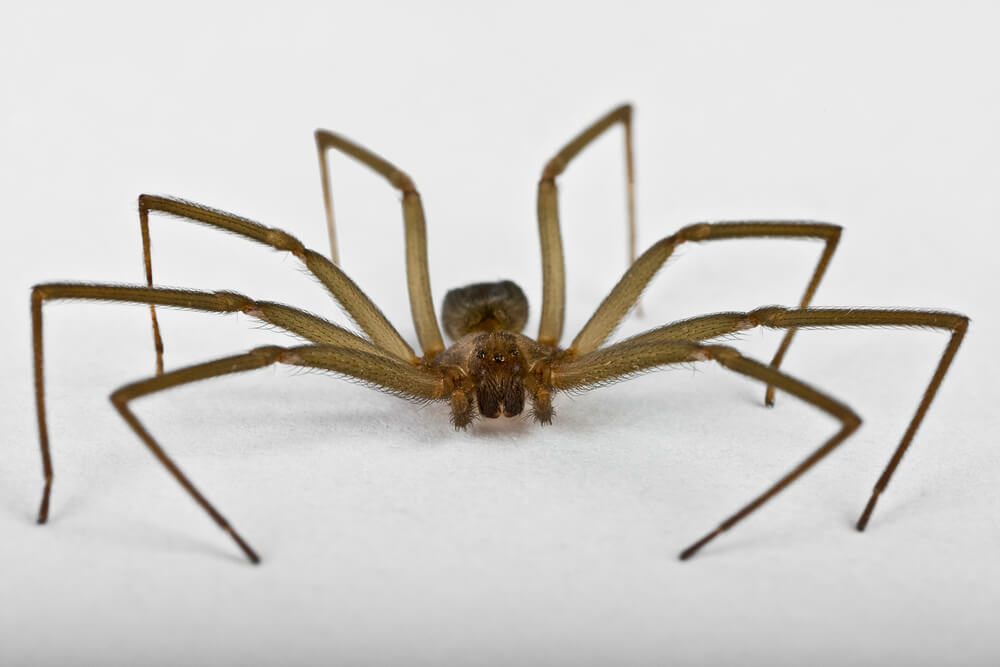
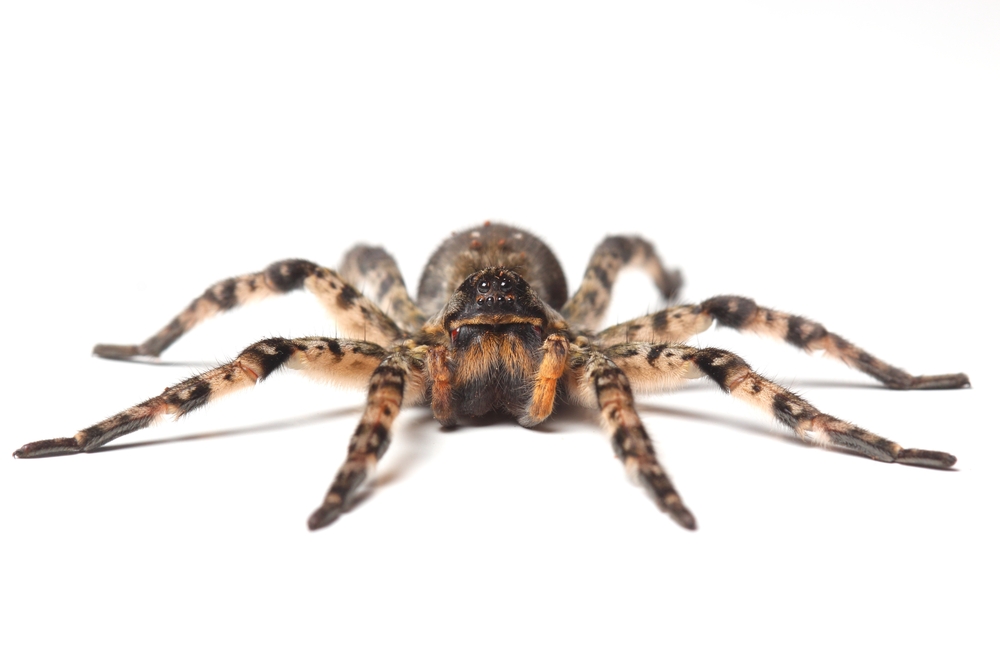
2) Wolf spider
The wolf spider is another popular spider in West Palm Beach and it has dark stripes. This one is also likely to bite if you mishandle it or if it feels trapped. These bites are painful, and victims often experience swelling or redness on the bite spots. These spiders are hairy and big and can run fast; unlike most other spiders, wolf spiders do not hunt their prey with webs, instead, they chase it. People usually see Wolf spiders because they enter structures or homes while searching for prey. You should definitely try to get rid of this spider, but it might be tricky, as they are known for being quick and evasive.
3) Banana spider
Although banana spiders do not live in enclosed places, they can still be found inside. These spiders tend to live in the woods, and they feed on various types of insects by creating large webs. They also bite whenever they feel threatened. Although the venom of this spider does not pose a serious threat to an adult, it can hospitalize a pet or an infant, so getting them out of your house should be a piority, no questions asked.
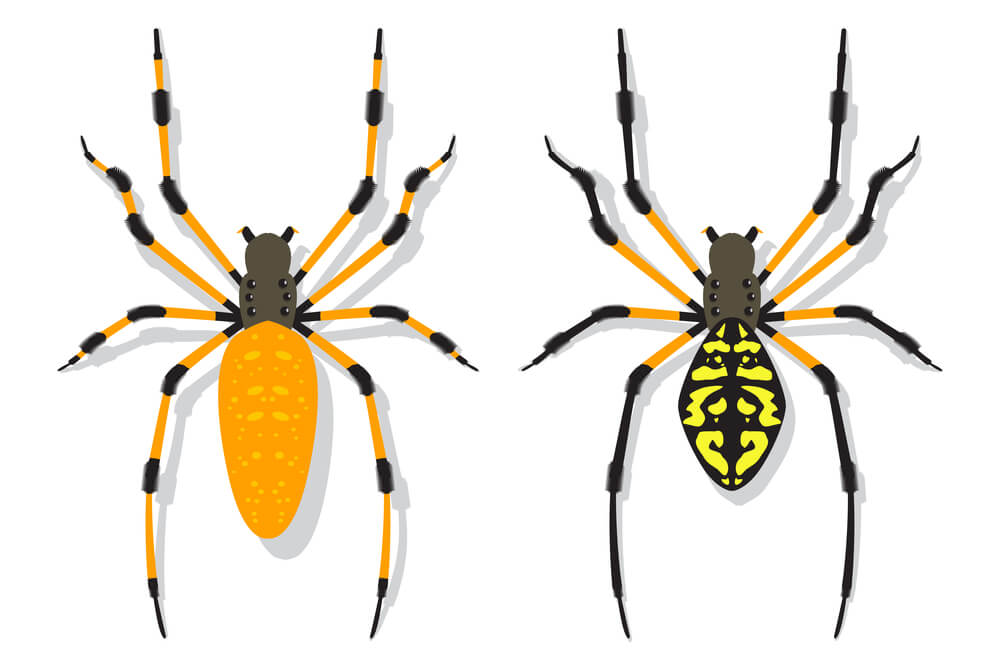
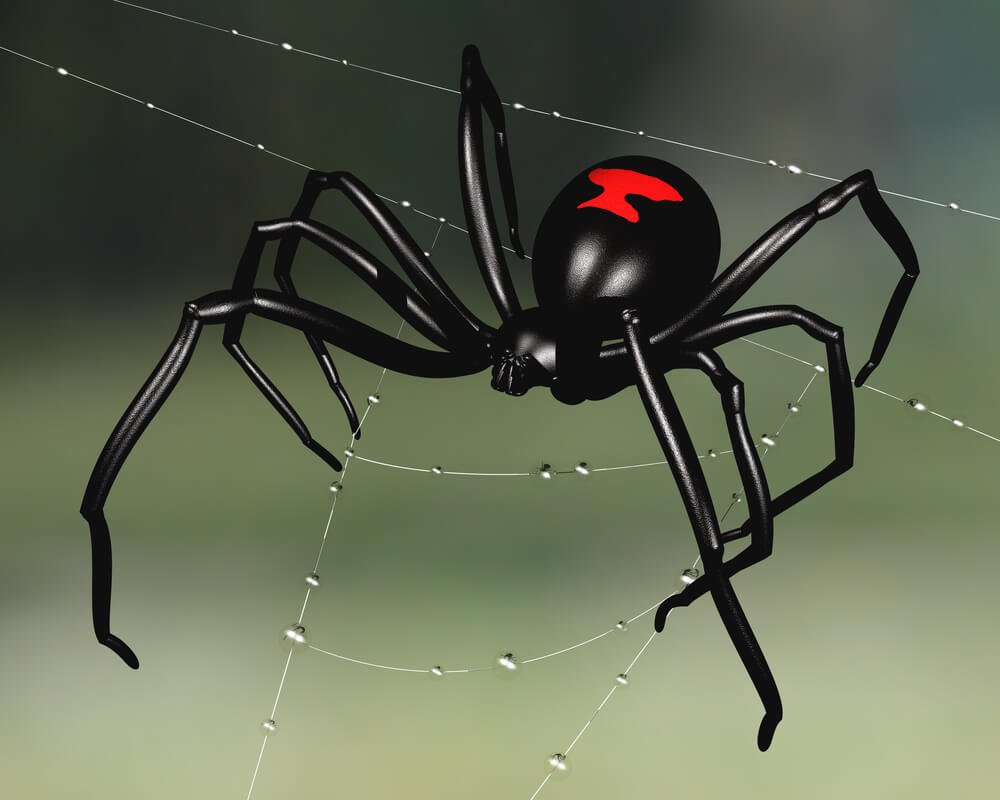
4) Black widow spider
Black widow spiders have a striking appearance and an hourglass-shaped marked abdomen. It is a venomous spider that uses webs to catch its prey. These spiders eat climbing and flying arachnids and insects. They paralyze prey that gets tangled in its web with a bite by releasing an enzyme.
The female black widows are often bigger than the males, and their bites are more venomous to humans. Some of the effects of the bite are muscle aches, hypertension, profuse sweating, and nausea. So this is one that you should definitely watch out for and try to get out of your house as quickly and safely as possible.
5) Huntsman spider
Huntsman spiders mostly live in logs, rock walls, crevices, and foliage, but they have been known to enter houses and cars. They can hide behind the sun visors in the car, and can also run across the dashboard. The huntsman spiders chase their prey and feed on invertebrates and insects. Some effects of the bites from this spider are inflammation and swelling. You are not likely to encounter one in your home and even if you do they are not life-threatening, but it could still be good to safely catch them and release them back outdoors.
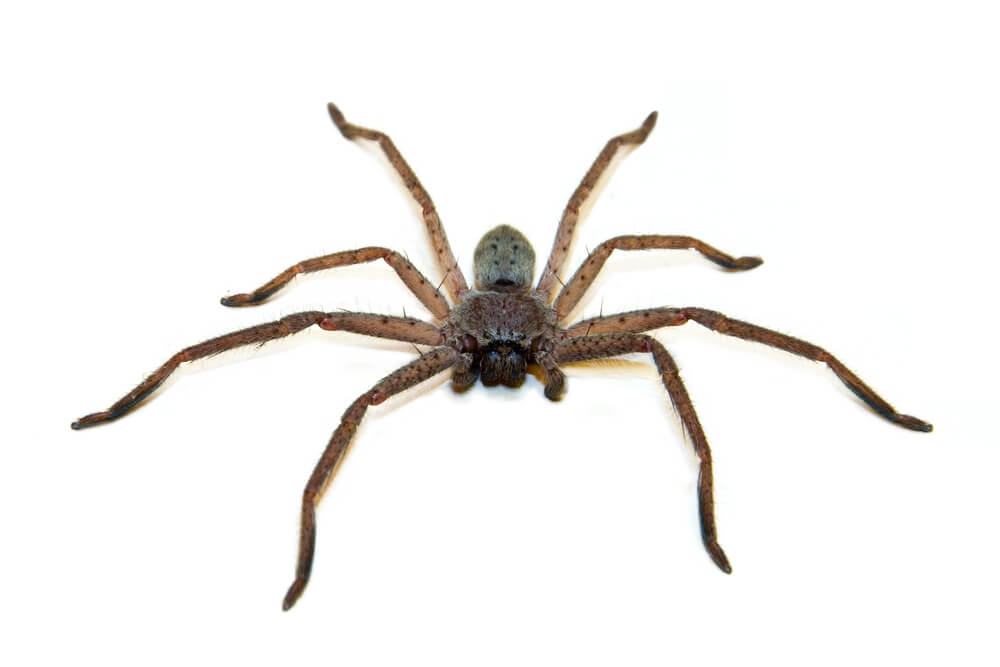
Prevent spiders from invading your home!
Having spiderwebs in your home is not only visually unpleasant, it also means you definitely have a spider problem. The question is: how bad it is?
These spiders can give you a nasty bite if you unknowingly get in their way or if you mishandle them while trying to release them back into their habitat. These bites can range from being itchy and painful to potentially dangerous.
We here at Shoreline Pest Control Services offer quality commercial or residential control services. We provide preventive measures to help remove pests, avoid an invasion and keep them away. Contact us if you think you might have one of these spiders crawling around your house, you can call us at 561-842-4700 or send us an email at [email protected]. We’ll get rid of those nasty little creatures in no time, and you can get back to relaxing in your home without worrying about finding the spider responsible for that web you still have on your sealing.

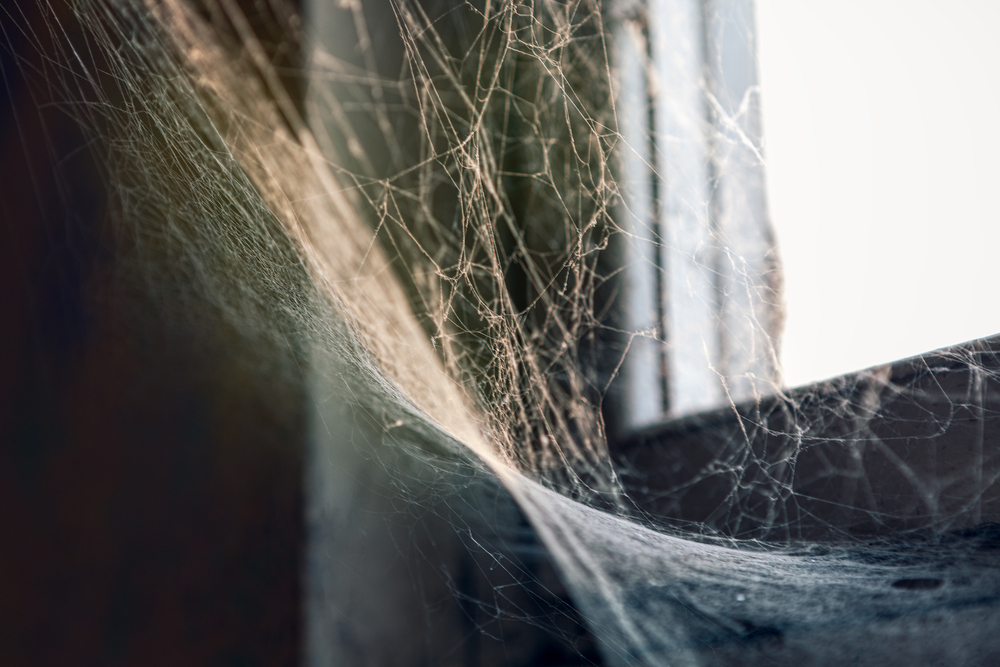

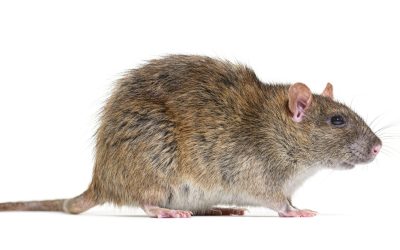
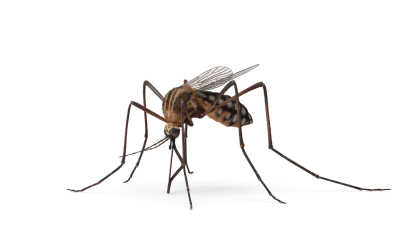
0 Comments